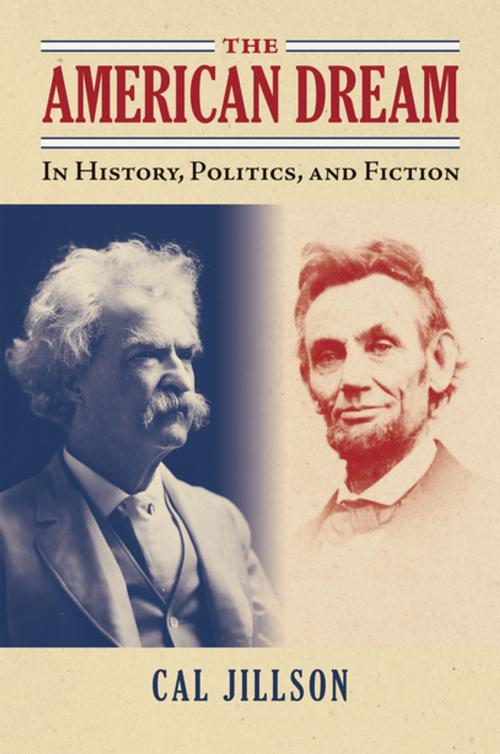The American Dream
In History, Politics, and Fiction
Nonfiction, Social & Cultural Studies, Political Science, Government, Democracy, History, Americas, United States| Author: | Cal Jillson | ISBN: | 9780700623112 |
| Publisher: | University Press of Kansas | Publication: | November 18, 2016 |
| Imprint: | University Press of Kansas | Language: | English |
| Author: | Cal Jillson |
| ISBN: | 9780700623112 |
| Publisher: | University Press of Kansas |
| Publication: | November 18, 2016 |
| Imprint: | University Press of Kansas |
| Language: | English |
Life, liberty, and the pursuit of happiness: these words have long represented the promise of America, a “shimmering vision of a fruitful country open to all who come, learn, work, save, invest, and play by the rules.” In 2004, Cal Jillson took stock of this vision and showed how the nation’s politicians deployed the American Dream, both in campaigns and governance, to hold the American people to their program. “Full of startling ideas that make sense,” NPR’s senior correspondent Juan Williams remarked, Jillson’s book offered the fullest exploration yet of the origins and evolution of the ideal that serves as the foundation of our national ethos and collective self-image.
Nonetheless, in the dozen years since Pursuing the American Dream was published, the American Dream has fared poorly. The decline of social mobility and the rise of income inequality—to say nothing of the extraordinary social, political, and economic developments of the Bush and Obama presidencies—have convinced many that the American Dream is no more. This is the concern that Jillson addresses in his new book, The American Dream: In History, Politics, and Fiction, which juxtaposes the claims of political, social, and economic elite against the view of American life consistently offered in our national literature. Our great novelists, from Nathaniel Hawthorne and Herman Melville to John Updike, Philip Roth, Toni Morrison, and beyond highlight the limits and challenges of life—the difficulty if not impossibility of the dream—especially for racial, ethnic, and religious minorities as well as women. His book takes us through the changing meaning and reality of the American Dream, from the seventeenth century to the present day, revealing a distinct, sustained separation between literary and political elite.
The American Dream, Jillson suggests, took shape early in our national experience and defined the nation throughout its growth and development, yet it has always been challenged, even rejected, in our most celebrated literature. This is no different in our day, when what we believe about the American Dream reveals as much about its limits as its possibilities.
Life, liberty, and the pursuit of happiness: these words have long represented the promise of America, a “shimmering vision of a fruitful country open to all who come, learn, work, save, invest, and play by the rules.” In 2004, Cal Jillson took stock of this vision and showed how the nation’s politicians deployed the American Dream, both in campaigns and governance, to hold the American people to their program. “Full of startling ideas that make sense,” NPR’s senior correspondent Juan Williams remarked, Jillson’s book offered the fullest exploration yet of the origins and evolution of the ideal that serves as the foundation of our national ethos and collective self-image.
Nonetheless, in the dozen years since Pursuing the American Dream was published, the American Dream has fared poorly. The decline of social mobility and the rise of income inequality—to say nothing of the extraordinary social, political, and economic developments of the Bush and Obama presidencies—have convinced many that the American Dream is no more. This is the concern that Jillson addresses in his new book, The American Dream: In History, Politics, and Fiction, which juxtaposes the claims of political, social, and economic elite against the view of American life consistently offered in our national literature. Our great novelists, from Nathaniel Hawthorne and Herman Melville to John Updike, Philip Roth, Toni Morrison, and beyond highlight the limits and challenges of life—the difficulty if not impossibility of the dream—especially for racial, ethnic, and religious minorities as well as women. His book takes us through the changing meaning and reality of the American Dream, from the seventeenth century to the present day, revealing a distinct, sustained separation between literary and political elite.
The American Dream, Jillson suggests, took shape early in our national experience and defined the nation throughout its growth and development, yet it has always been challenged, even rejected, in our most celebrated literature. This is no different in our day, when what we believe about the American Dream reveals as much about its limits as its possibilities.















